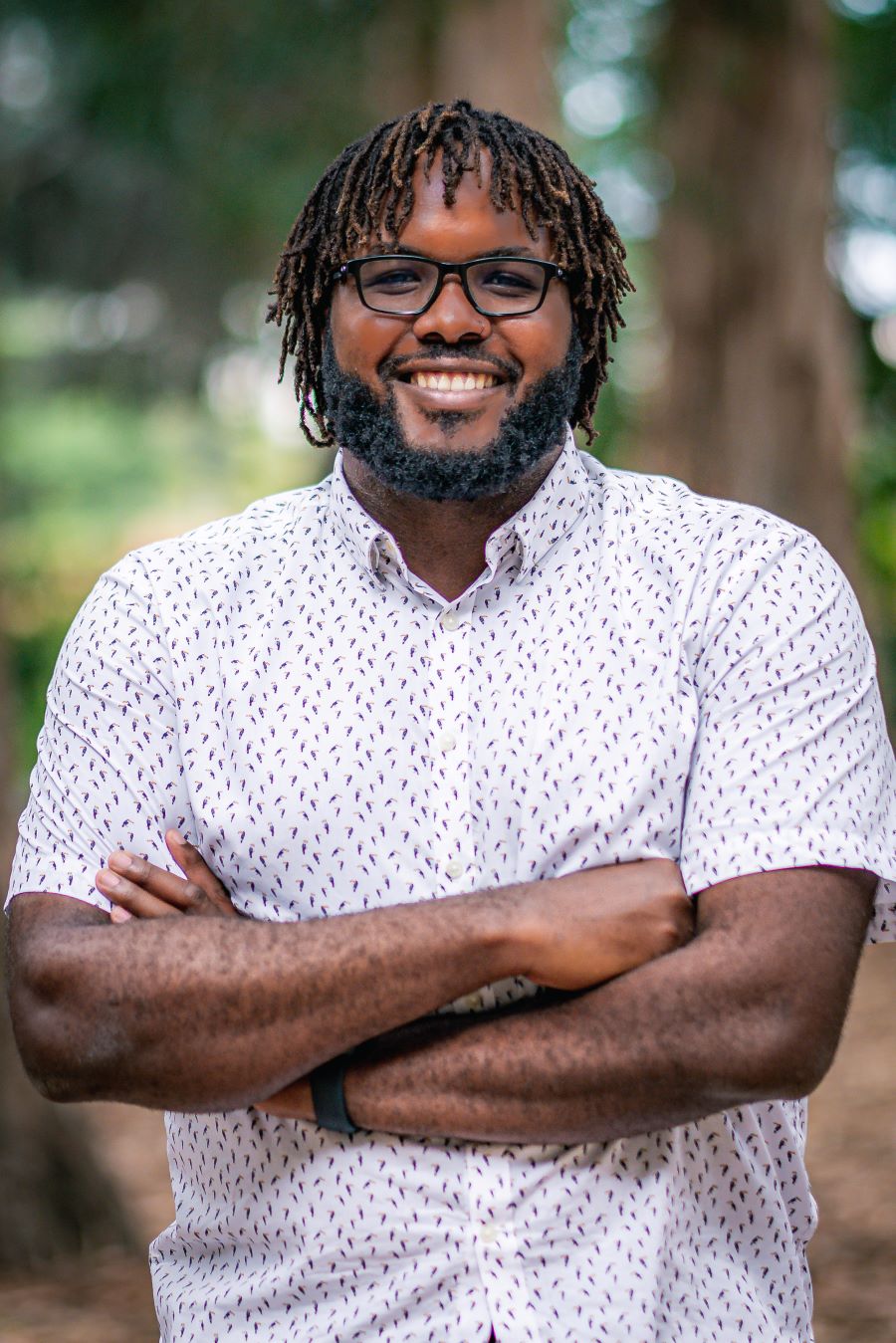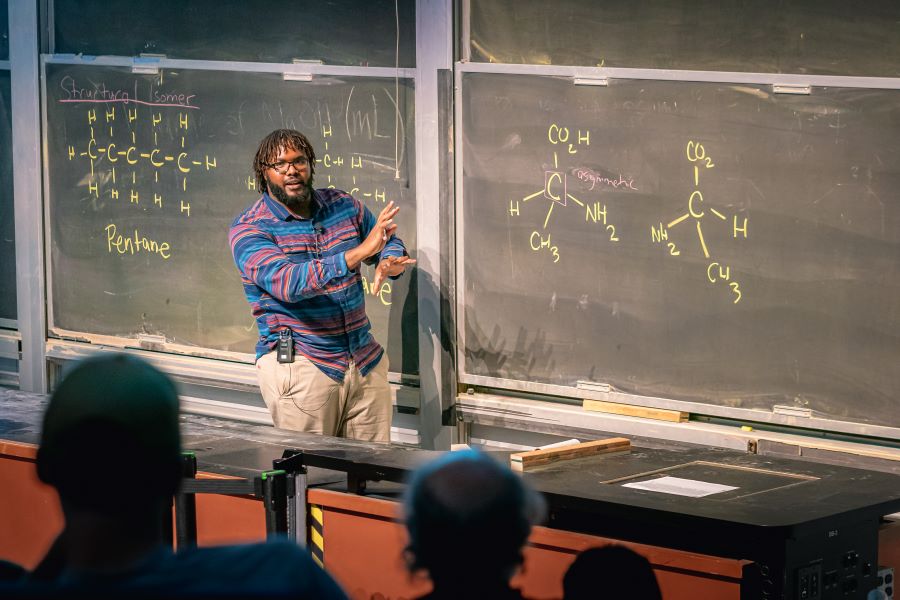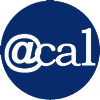
New Faculty Profile
An Active, Inclusive Approach to Science Education
By Kirsten Mickelwait

“The classroom is my laboratory,” says Lorenzo Lones. “I'm collecting data with formative assessments and measuring physical and verbal behaviors in the classroom to understand how they affect student learning.” In July, Lones joined our department as an assistant teaching professor in the division of Cell Biology, Development and Physiology (CDP). Trained as a neuroscientist, he’s a biology education researcher who studies the science of pedagogy.
His first focus will be to refresh Biology 1A, implementing a more active learning approach in the introductory course. Studies have shown that active student engagement narrows “achievement gaps” and makes the classroom a more equitable place for students from across different backgrounds. In his research, Lones is investigating students’ perceptions of instruction implementation and how these experiences affect their learning.
Another area of interest is “instructor immediacy”—the physical and verbal behaviors that decrease the psychological distance between instructor and student. Current research suggests that there’s a relationship between instructor immediacy, student motivation, and learning. In a traditional classroom, where a professor stands at the front and delivers scientific facts, there’s a vast psychological distance between the teacher (the expert) and the student (the novice). That distance is even greater at an institution like Berkeley, where the professor is likely a renowned scientist in his or her field.
One of the things Lones studied as a postdoc was how to mediate this issue using verbal and nonverbal behaviors. “Sharing one’s own learning experience, like ‘Hey, when I was taking biology, I struggled with this concept’ validates students’ experience and increases learning,” he says.
A first-generation college student, Lones grew up without formal academic mentors. Looking back now, however, he realizes that his grandfather modeled scientific inquiry on a regular basis. “He didn't finish high school, but he was one of the sharpest scientists I knew,” Lones says. “As a construction worker, he had to build structures that regulate moisture and heat, which inherently involves leveraging knowledge in physics and chemistry.”

Lones majored in human biology and psychology as an undergrad, which led him to neuroscience. After earning his PhD from Washington University in St. Louis, he did his postdoc with Kimberly Tanner in the Science Education Partnership & Assessment Laboratory at San Francisco State University. Along the way, he’s taught at the undergraduate, graduate, and medical school levels.
Now, he’s bringing that accumulated experience to his lab and the classroom at MCB. Based on the data he gathers about how his students are learning, he can then modify his teaching practices. Although he’ll cover the same material each semester, he never teaches a class the same way—he’ll often let data collected from students determine his pedagogical approach. “It maps directly onto how a research lab is run: if your data doesn’t fit the model, you might change the model.”
That iterative process is a key aspect of being a scientist, he says. “You ask questions, you collect data, you go back to the drawing board, you change something. It’s a constant refinement process.”
Lones also wants to impart to his students a sense of belonging within the scientific community. He builds curricula that highlights people from marginalized communities who’ve made significant contributions to the scientific enterprise.
In his off-time, Lones is a huge sports fan and plays tennis whenever he can. He and his partner love cooking and traveling, and have recently gotten into making their own pottery. But his passion always brings him back to the classroom and his students. “Throughout our lives, we’re told that science is done in the lab; you have to wear a white lab coat, you have to make some tremendous discovery,” he says. “But whenever you're trying to figure things out, you’re probably practicing science.”
Banner image credit: Keagan Houser
Back to Main Fall 2023 Newsletter Page
| Connect With Us! | ||||
 MCB X (formally Twitter) |
 LinkedIn Postdocs, PhDs, or Undergrads |
 Cal Alumni Network |
 Give to MCB |
|
